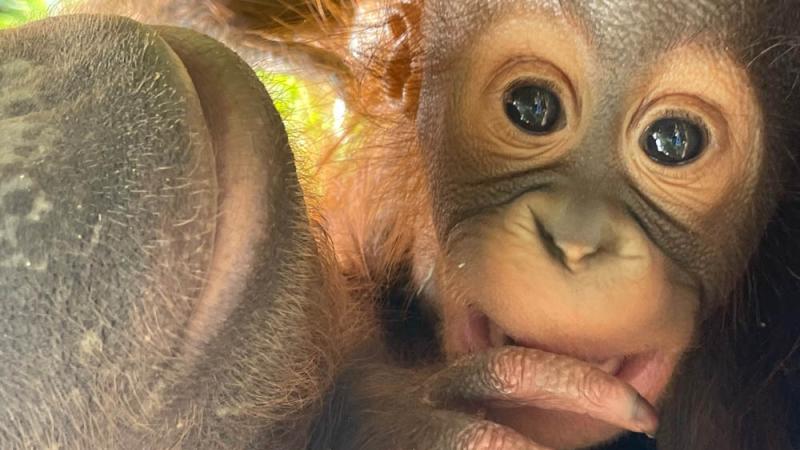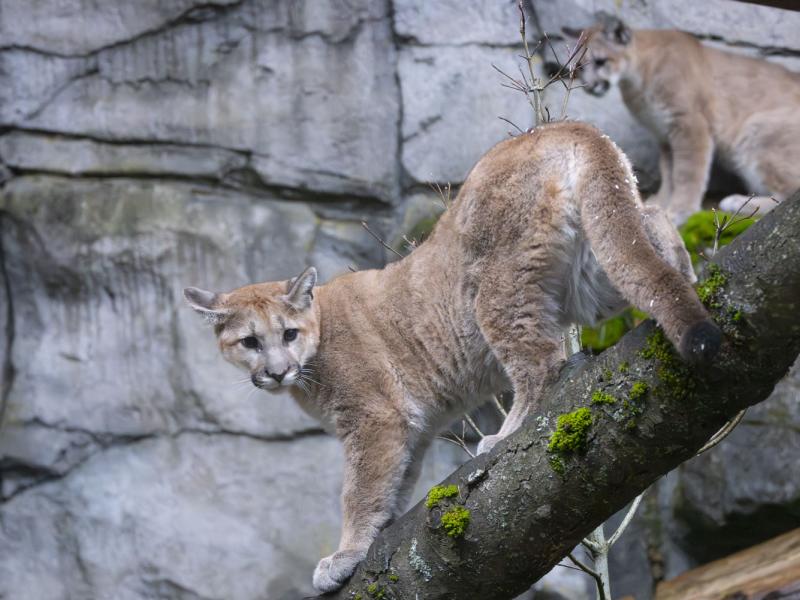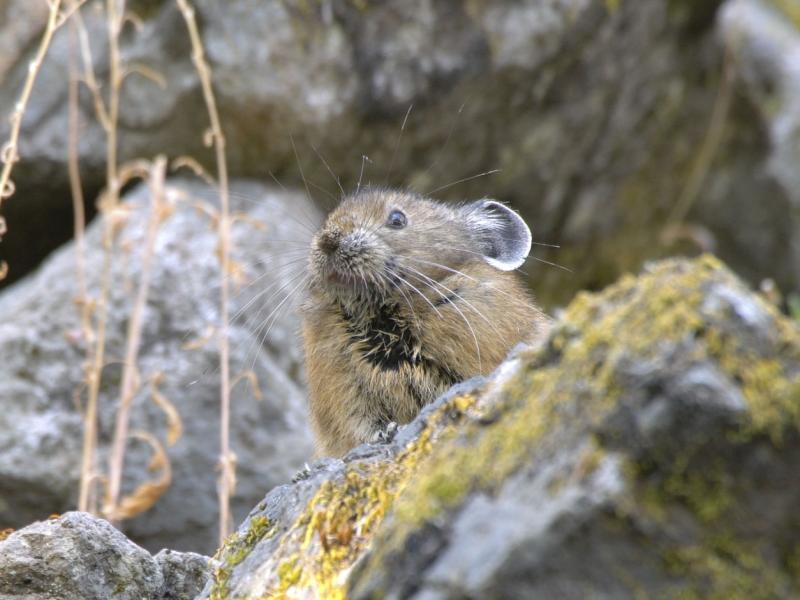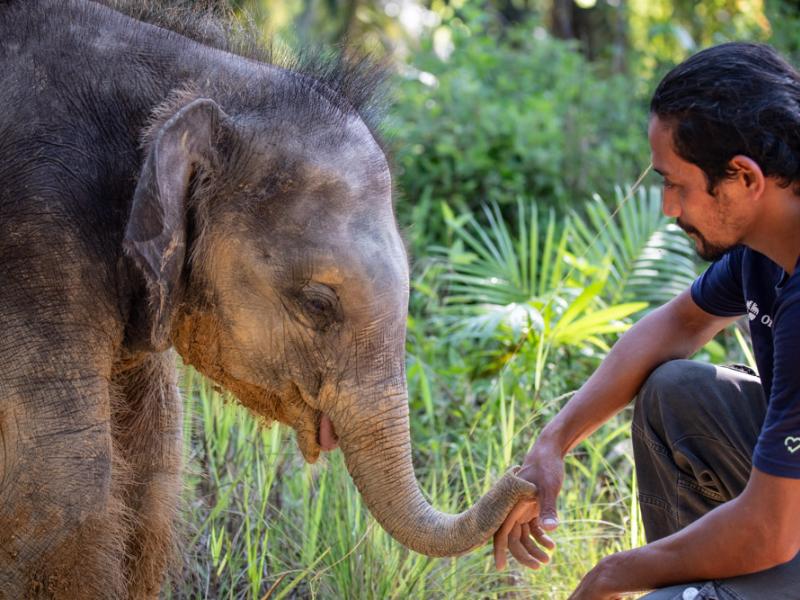Oregon Zoo keepers care for orangutans in Borneo

As forests are cleared for palm oil production and logging, orangutans become easy targets for poachers.
"Often times the mothers are shot. And so that why's the Bornean Orangutan Survival Foundation gets the babies in," said primate keeper Colleen Reed, who recently traveled to Borneo with Oregon Zoo colleague Cydney Sines. "You don't ever get a baby unless the mother's been killed."
The Borneo Orangutan Survival Foundation rescues displaced, injured and orphaned orangutans. Most are rehabilitated and released back to the wild but some of them, usually for medical reasons, can't be released. Those animals still need care.
At the Oregon Zoo, keepers work closely with orangutans to earn their trust. Through training, the orangutans learn to participate in their own health care. These same techniques can be used by care staff in Borneo.
"Our main goal was to train orangutans that are non-releasable," said Reed. "All of the orangutans we worked with and most of the people had not had any prior training experience. Our idea was to go in and train a few animals specifically and then transfer those onto the keeper staff and the vet staff there."
"We did injection training, which was incredibly helpful for them," said Reed. "It's a lot less stressful, you can use less medication and it is just better for everybody all around. In the end they went from not being able to do something to seeing an animal completely transform in just a couple training sessions, to cooperate in whatever they needed to do, which makes their job a lot faster and a lot more fun."
"The Borneo Orangutan Survival Foundation essentially tries to release as many orangutans back to the wild as they can," Reed said. "It's a really long drive to get them to real protected forest. I got to actually release the last one going out which was very cool."
"It's just incredibly surreal and heartwarming to be kind of in this world from afar and to work with the animals here, to see us actually have an impact in Borneo," said Reed. "Not only with the training we did but to be able to release them back to the wild. There's not much more that I could've asked for."
More News

Rescued cougar cubs are venturing out
A pair of orphaned cougar cubs, rescued and brought to the zoo by Washington Department of Fish and Wildlife staff in November, have begun exploring their outdoor habitat.April 17, 2025

Zoo seeks pika watchers for summer season
The Oregon Zoo is recruiting volunteers for Cascades Pika Watch.April 15, 2025

Zoo convenes action for imperiled elephants
Sabah government representatives joined conservation NGOs, local communities, palm oil producers, and tourism operators this week in the fight to save the world’s smallest elephants from extinction.April 11, 2025

